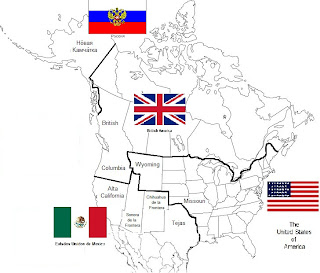Life at the Frontlines of Demographic Collapse
12 hours ago
We're still in the Enlightenment, only now reason has shown us that we are not reasonable - and a more empirical study of man helps us remember the point of the whole program
| Measure | R squared, Absolute | Adjusted |
| Well-being | +, 0.0751 | +, 0.0651 |
| Per cap income | +, 0.0099 | +, 0.0773 |
| Gini | -, 0.066 | -, 0.0266 |
| Measure | R squared, Absolute | Adjusted |
| Well-being | +, 0.0311 | +, 0.0004 |
| Per cap income | +, 0.0131 | +, 0.0738 |
| Gini | -, 0.0126 | +, 0.0086 |
The US is moving forces to Australia, Australia is selling uranium to India, Japan is stepping up military actions and coordinating more closely with the Philippines and Vietnam in the South China Sea, Myanmar is slipping out of China's column and seeking to reintegrate itself into the region, Indonesia and the Philippines are deepening military ties with the the US: and all that in just one week. If that wasn't enough, a critical mass of the region's countries have agreed to work out a new trade group that does not include China, while the US, to applause, has proposed that China's territorial disputes with its neighbors be settled at a forum like the East Asia Summit — rather than in the bilateral talks with its smaller, weaker neighbors that China prefers...The diplomatic blitzkrieg moved so fast and on so many fronts, with the strokes falling so hard and in such rapid succession, that China was unable to develop an organized and coherent response...the US has reasserted its primacy in a convincing way. The US acted, received strikingly widespread support, and China backed down.
That is in fact what happened, and it was as decisive a diplomatic victory as anyone is likely to see. Congratulations should go to President Obama and his national security team. (Full piece here at the American Interest.)


JARON LANIER: I'd like to hypothesize one civilizing force, which is the perception of multiple overlapping hierarchies of status. I've observed this to be helpful in work dealing with rehabilitating gang members in Oakland. When there are multiple overlapping hierarchies of status there is more of a chance of people not fighting their superior within the status chain. And the more severe the imposition of the single hierarchy in people's lives, the more likely they are to engage in conflict with one another. Part of America's success is the confusion factor of understanding how to assess somebody's status.
STEVEN PINKER: That's a profound observation. There are studies showing that violence is more common when people are confined to one pecking order, and all of their social worth depends on where they are in that hierarchy, whereas if they belong to multiple overlapping groups, they can always seek affirmations of worth elsewhere. For example, if I do something stupid when I'm driving, and someone gives me the finger and calls me an asshole, it's not the end of the world: I think to myself, I’m a tenured professor at Harvard. On the other hand, if status among men in the street was my only source of worth in life, I might have road rage and pull out a gun.
Dr. Peter Whybrow, a British neuroscientist at U.C.L.A. with a theory about American life. He thinks the dysfunction in America's society is a by-product of America's success. In academic papers and a popular book, American Mania, Whybrow argues, in effect, that human beings are neurologically ill-designed to be modern Americans. The human brain evolved over hundreds of thousands of years in an environment defined by scarcity. It was not designed, at least originally, for an environment of extreme abundance. "Human beings are wandering around with brains that are fabulously limited," he says cheerfully. "We've got the core of the average lizard." Wrapped around this reptilian core, he explains, is a mammalian layer (associated with maternal concern and social interaction), and around that is wrapped a third layer, which enables feats of memory and the capacity for abstract thought. "The only problem," he says, "is our passions are still driven by the lizard core. We are set up to acquire as much as we can of things we perceive as scarce, particularly sex, safety, and food." Even a person on a diet who sensibly avoids coming face-to-face with a piece of chocolate cake will find it hard to control himself if the chocolate cake somehow finds him. Every pastry chef in America understands this, and now neuroscience does, too. "When faced with abundance, the brain's ancient reward pathways are difficult to suppress," says Whybrow. "In that moment the value of eating the chocolate cake exceeds the value of the diet. We cannot think down the road when we are faced with the chocolate cake."
The richest society the world has ever seen has grown rich by devising better and better ways to give people what they want. The effect on the brain of lots of instant gratification is something like the effect on the right hand of cutting off the left: the more the lizard core is used the more dominant it becomes. "What we're doing is minimizing the use of the part of the brain that lizards don't have," says Whybrow. "We've created physiological dysfunction. We have lost the ability to self-regulate, at all levels of the society. The $5 million you get paid at Goldman Sachs if you do whatever they ask you to do—that is the chocolate cake upgraded."
...It's a problem of people taking what they can, just because they can, without regard to the larger social consequences. It's not just a coincidence that the debts of cities and states spun out of control at the same time as the debts of individual Americans. Alone in a dark room with a pile of money, Americans knew exactly what they wanted to do, from the top of the society to the bottom. They'd been conditioned to grab as much as they could, without thinking about the long-term consequences. Afterward, the people on Wall Street would privately bemoan the low morals of the American people who walked away from their subprime loans, and the American people would express outrage at the Wall Street people who paid themselves a fortune to design the bad loans.



How to Tie a Bow Tie from Keith Paugh on Vimeo.

The Confederacy was not a bunch of generally well-meaning dudes who went a little too far, it was a gang of racist traitors who launched a bloody war to defend a monstrously unjust institution [and tried to destroy the Union in the process - MC]. Having neo-Confederate sympathies in America should be equivalent to supporting the reconstituted Fascist party in Italy, or worse.



.jpg)
I apply the same dismissal to wine as I do to sake. I've come to the conclusion that intentionally refining one's palate is a form of masochism that any self-respecting hedonist should reject. Why the hell would I ever deliberately make my palate more difficult to please? By developing your taste, you're intentionally making your marginal unit of pleasure more expensive - you're making yourself more difficult to please. If you have a bad case of wine signal-itis and you enjoy announcing to dining compatriots all the flaws you've found in the wine on the table in front of you, you might put it in perspective this way...That's why I'm intentionally letting what little refinement I've achieved go fallow, and I automatically order the cheapest table wine on the menu. Or I don't, and get a Coke.



